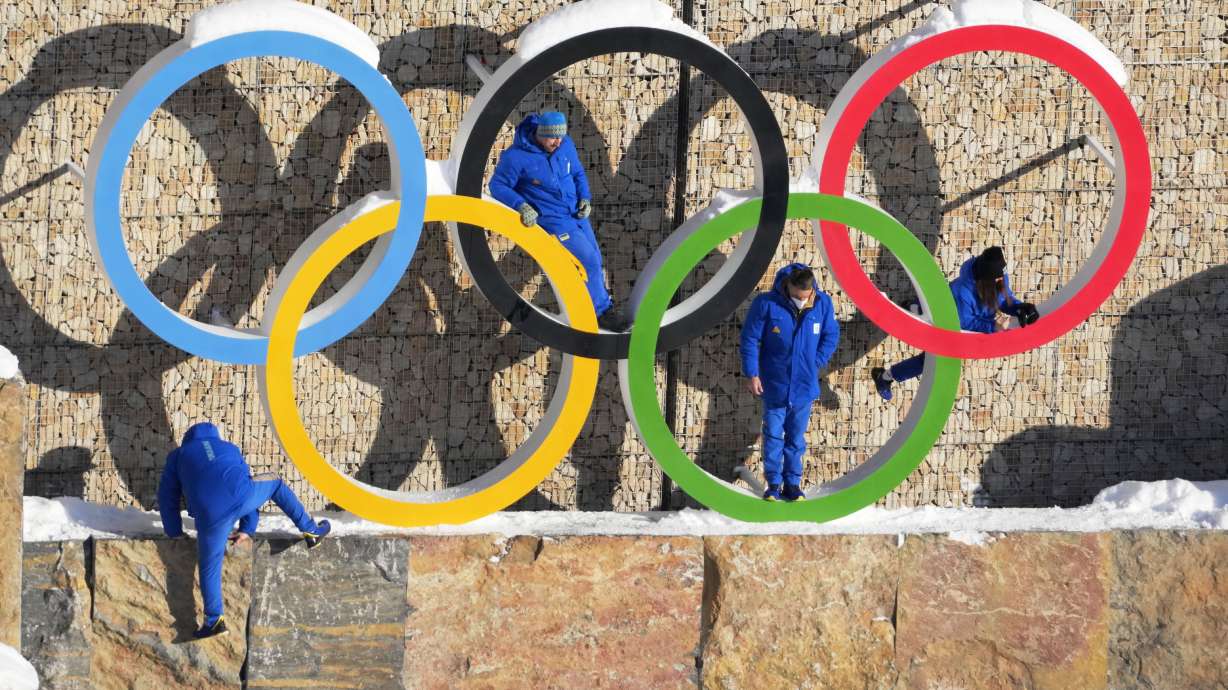Estimated read time: 4-5 minutes
This archived news story is available only for your personal, non-commercial use. Information in the story may be outdated or superseded by additional information. Reading or replaying the story in its archived form does not constitute a republication of the story.
SALT LAKE CITY — The "huge costs" of another Olympics in Sapporo, Japan, just got bigger.
Salt Lake City's only remaining rival for the 2030 Winter Games now expects to spend as much as $2.17 billion to host if they're the International Olympic Committee's pick, a $116 million increase over the previously announced budget limit, GamesBids reported.
The reason for Sapporo's budget increase, which also adds $27 million to the $307 million needed from the northern Japanese city's taxpayers to help cover the cost of new facilities, are that nation's soaring inflation and the yen's steep decline against the dollar, according to the Japanese newspaper, The Asahi Shimbun.
Inflation in the U.S. is more than triple the 2.5% anticipated annually in Salt Lake City's proposed $2.2 billion budget for 2030, but Fraser Bullock, president and CEO of the Salt Lake City-Utah Committee for the Games, said any increased costs would have to be offset by raising more money from licensing and other revenue sources.
"We may have to make an inflation adjustment. And if we do, we'll do it on the cost side and the revenue side," Bullock said. "Revenues will go up as well because they'll be affected by inflation. So the net bottom line, the net, will still be a break-even budget."
'The most risk'
It's too soon to estimate how much that adjustment would be, he said. Salt Lake City's budget, which is in 2030 dollars and does not require any state or local taxpayer funding, includes a $200 million contingency fund as well as another $250 million set aside for legacy projects.
What's not in the budget is any new construction, since the facilities built in Utah for the 2002 Winter Games would be used again after about $30 million in updates, Bullock said, eliminating "the area that has the most risk" of cost overruns.
Sapporo, which last hosted a Winter Games in 1972, is planning to use some facilities built for the 1998 Winter Games in Nagano, Japan. Six years ago, during a brief bid for the 2026 Winter Games, Sapporo said it would cost more than $3 billion to host another Olympics.
The IOC's Future Host Commission is set to meet this month to review the Sapporo and Salt Lake City bids and make recommendations to the Switzerland-based organization's executive board. The IOC leaders, who meet in December, could decide then to advance one or both cities to the contract negotiation stage of the bid process.
That's when Salt Lake City would make any adjustments for inflation, Bullock said. The full membership of the IOC is expected to vote on the host of the 2030 Winter Games in the fall of 2023, a decision originally scheduled for next May but recently postponed.
Many see Sapporo as the frontrunner in the race after the U.S. Olympic and Paralympic Committee made it clear it would be better if Salt Lake City waited until 2034, rather than host just 18 months after the 2028 Summer Games in Los Angeles. Bullock said Salt Lake City is ready for 2030 if needed.
Even with the U.S. preference for hosting the 2034 Winter Games, and another contender, Vancouver, Canada, dropping out of the running, Sapporo is struggling with public support, especially compared to the nearly 80% of Utahns who want another Olympics, according to a Deseret News/Hinckley Institute of Politics poll.
'Costs go up'
In May, the Associated Press reported Japanese Olympic Committee head Yasuhiro Yamashita said while "there are many views" among supporters of Sapporo's bid, the biggest issue they faced were "concerns about the huge costs involved," given the expense of the 2020 Summer Games in Tokyo that were delayed a year due to COVID-19.
Since then, however, an executive of the Tokyo Games has been charged with allegedly accepting money from Japanese companies seeking to become sponsors. A Japanese IOC member, Morinari Watanabe, warned last week the Olympic bribery scandal is hurting the bid.
"I think Sapporo remains the most prospective candidate to host the 2030 Winter Olympics, but the issue of the Tokyo Games needs to be cleared up," Watanabe said last week, GamesBids reported. "It will be impossible for Sapporo unless the fundamental distrust is dispelled, no matter how much promotion is done."
Sapporo's new budget, presented this week to city leaders, included what GamesBids described as "a declaration of reform to ensure transparency and fairness" signed by both the Japanese Olympic Committee and the city of Sapporo in an effort to win back the public's approval.
Mark Conrad, director of the sports program at Fordham University's Gabelli School of Business in New York City, said the increase in Sapporo's budget could further erode public support for the bid. But he said the budget changes may not matter much to the IOC.
"I don't know that it will have much effect. These guys are not paying the bills. That's what it comes down to," Conrad said. "As far as they're concerned, in the politics involved in it, I don't think it makes much difference. It doesn't embarrass them. That's the big thing. If costs go, costs go up."









